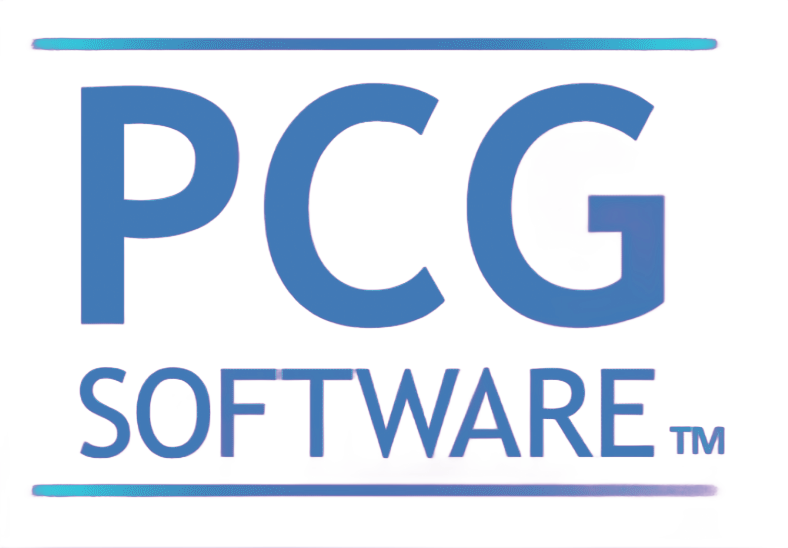2023 Medicare Conversion Factors: Finance and Workforce Impacts
Summary: As the healthcare system emerges from the acute phase of COVID-19, providers and health plans are not entering a period of relief—they are entering a period of sustained financial pressure. Inflation, workforce instability, and declining reimbursement continue to converge. One of the most tangible signals of this pressure is the 2023 Medicare Physician Fee Schedule (PFS) conversion factor reduction. While the dollar impact per service may appear modest, the downstream effects on staffing, access to care, consolidation, and operational strategy are significant. This article explains the statutory drivers behind Medicare reimbursement changes, the real-world impact on providers and health systems, and why financial analytics and operational discipline are now mandatory—not optional.
The Statutory Pay-As-You-Go Model
The Statutory Pay-As-You-Go Act of 2010 (PAYGO) was enacted to prevent federal deficit growth by requiring that new mandatory spending be offset by revenue increases or spending reductions elsewhere. While the law has technically remained in effect since 2010, Congress has historically waived enforcement during periods of economic or public health crisis.
Major legislation passed in recent years—including the American Rescue Plan Act of 2021, which authorized approximately $1.9 trillion in COVID-19 relief—has repeatedly triggered PAYGO scorecards that would otherwise mandate reductions in Medicare spending. Each time, Congress has deferred enforcement through year-end legislative action.
Although Congress retained discretion to waive PAYGO enforcement through December 31, 2022, the underlying fiscal pressure remains unresolved. As pandemic-era emergency spending sunsets, Medicare reimbursement becomes one of the most exposed levers for federal cost containment.
Provider Financial Stress Leading into the 2023 Decision
Hospitals, physician practices, IPAs, MSOs, and community clinics have absorbed the brunt of post-COVID financial strain. Rising labor costs, persistent turnover, declining reimbursement, and increased regulatory complexity have forced many organizations to shift from growth planning to survival mode.
If Medicare reimbursement declines—even by a few percentage points—smaller and mid-sized practices are disproportionately affected. Reduced margins accelerate:
- Practice acquisitions and hospital consolidation
- Mergers driven by access to capital rather than clinical strategy
- Staff reductions and delayed hiring
- Higher provider-to-patient ratios
- Longer wait times and reduced appointment availability
As margins compress, organizations with scale can expand, while smaller entities are forced to stabilize or exit the market entirely.
Congress’ Decision on the 2023 Physician Conversion Factor
The CY 2023 Medicare Physician Fee Schedule finalized a conversion factor of
$33.06,
a $1.55 decrease from 2022, representing approximately a 4.5% year-over-year reduction. While CMS simultaneously expanded billing opportunities for evaluation and management (E/M) services, behavioral health, and preventive care, the net effect remains a reduction in overall physician reimbursement. This forces providers to reassess not only clinical workflows, but also service mix, staffing models, and operational efficiency. Healthcare organizations are increasingly required to evaluate themselves as businesses—understanding margins by service line, payer mix sensitivity, and cost per encounter—rather than relying solely on volume growth.
Healthcare Labor Costs Continue to Escalate

In 2023, the overall Healthcare turnover was 20.7%, but this statistic is misleading. Here's why....
Healthcare doesn't have "turnover" like other industries. Very rarely does a doctor, nurse, pharmacist, anesthesiologist, or medical assistant leave healthcare; they typically jump to another organization for financial and/or personal reasons. Click each of the following below to find statistics related to each of the major roles in Healthcare.
22-40% Turnover Per Role in Healthcare
Turnover among medical support staff has reached levels that materially threaten revenue cycle stability. According to the 2023 MGMA DataDive Practice Operations report, front-office support roles experienced approximately 40% annual turnover, while business operations and billing staff exceeded 33% turnover in 2022. These rates far exceed typical front-office turnover benchmarks, which often average closer to 20% in non-healthcare environments. While overall hospital turnover hovered around 20.7% in 2023—and registered nurse turnover averaged 18.4%—the volatility within administrative and billing roles inside medical groups is especially problematic because these positions directly control eligibility verification, authorizations, coding accuracy, claim submission, and collections. When instability exists in these roles, revenue disruption is immediate, not theoretical.
The financial impact of this churn is substantial. Replacing a single frontline administrative or billing employee routinely costs $25,000–$30,000 when accounting for recruiting, onboarding, training, and lost productivity. For more specialized billing and revenue cycle roles, replacement costs can approach — or exceed — 100% to 200% of the employee’s annual salary, particularly when payer-specific expertise, local plan knowledge, or complex coding experience is required. Each departure resets operational momentum, increases denial risk, and delays cash flow. For clinics, IPAs, MSOs, and hospital-owned practices already operating under reimbursement pressure and inflationary labor costs, unchecked administrative turnover is no longer a human resources issue—it is a direct financial and compliance risk that demands proactive retention and operational strategy.
Provider Turnover and Costs in 2023
During the COVID era, workforce volatility reached historic levels. Approximately 43% of providers changed jobs, while an additional 8% retired early. Overall healthcare turnover rose from 2.7% pre-COVID to over 10%, with roughly 3% of clinicians leaving healthcare entirely. The financial cost of replacing a provider is now estimated at 25% of annual salary, excluding productivity loss. For an average provider earning $225,000, replacement costs exceed $56,000 per hire—a burden many clinics and hospitals are not equipped to absorb.
Nurse Turnover and Costs in 2023
Nursing turnover has been equally destabilizing. Over a five-year period, cumulative nurse turnover in hospital settings exceeded 100%, with 2021 alone seeing an 8.4% increase over 2020. The cost to replace a single nurse vacancy now ranges between $40,000 and $50,000, excluding signing bonuses and wage inflation.
Front Office Turnover Costs
Inflation has further intensified competition, with non-medical employers offering wages that rival or exceed healthcare support roles. In California, for example, medical assistants earning an average of $18/hour face competition from fast-food employers offering $22/hour or more. Without competitive compensation and retention strategies, healthcare organizations risk operational breakdown at the front line of patient access.
Why Financial Analytics Are No Longer Optional
As reimbursement declines, organizations must understand which services generate sustainable margins and which introduce financial risk. This has driven increased reliance on:
- Management Services Organizations (MSOs)
- Internal financial analysts and revenue integrity teams
- Service-line profitability analysis
- Targeted marketing and growth strategies aligned with margin performance
Providers cannot simply “work harder” to offset reimbursement cuts. They must work smarter, prioritizing high-value services, reducing leakage, and aligning operational decisions with real financial data.
5 Things Providers can do to make their practices more profitable in 2023
As Medicare reimbursement tightens and operating costs continue to rise, providers must shift from reactive cost-cutting to proactive profitability management. The strategies below outline practical, controllable actions healthcare organizations can take in 2023 to protect margins, stabilize operations, and sustain growth despite reimbursement pressure. Each approach focuses on improving efficiency, reducing financial leakage, and aligning clinical operations with sound business fundamentals—without compromising patient care or compliance.
1. Focus on Service-Line Profitability, Not Just Patient Volume
Many practices still measure success by visit counts rather than margin contribution. In 2023, providers must understand which services generate sustainable reimbursement after staffing, supply, and administrative costs are factored in. Analyzing profitability at the procedure and diagnosis level allows leadership to prioritize high-value services, reduce exposure to chronically underpaid encounters, and make smarter scheduling and growth decisions without increasing workload.
2. Improve Coding Accuracy and Documentation Quality
As reimbursement tightens, even small coding and documentation errors create outsized financial impact. Strengthening diagnosis specificity, modifier usage, and medical necessity documentation improves first-pass claim acceptance and reduces costly denials and appeals. Accurate coding not only protects revenue but also reduces compliance risk and administrative rework, freeing staff to focus on patient care and operational efficiency.
3. Reduce Staff Turnover Through Operational Stability
Turnover is one of the most expensive and underestimated cost drivers in healthcare. Predictable workflows, reduced rework, and fewer billing disruptions directly improve staff retention by lowering burnout. Practices that stabilize revenue cycles and staffing expectations can reinvest savings into compensation, training, and career development—reducing long-term recruitment and onboarding expenses that erode profitability.
4. Use Financial Data to Guide Growth Decisions
Expansion without financial discipline increases risk. Providers should evaluate payer mix, reimbursement trends, and contract performance before adding locations, services, or headcount. Data-driven growth—guided by collections trends, denial rates, and margin analysis—helps practices expand responsibly while avoiding cash-flow strain during periods of inflation and reimbursement pressure.
5. Invest in Financial and Revenue Cycle Expertise Early
As margins compress, financial oversight becomes mission-critical. Whether through internal analysts, experienced business managers, or MSO partnerships, practices need consistent insight into collections, denials, reimbursement changes, and cost structures. Organizations that monitor performance monthly instead of quarterly are better positioned to correct issues early, protect margins, and adapt quickly to ongoing reimbursement changes.
Conclusion: Small Cuts, Large Impact
While a $1.55 reduction in the Medicare conversion factor may appear modest in isolation, its compounded impact—combined with inflation, workforce instability, and rising operational costs—is substantial. Providers are being forced to adopt more sophisticated financial management strategies, whether through internal leadership or external MSO support. Organizations that fail to understand their cost structures, service mix profitability, and staffing efficiency will struggle to remain viable. Those that invest in analytics, compliance, and operational discipline will be better positioned to withstand reimbursement volatility and protect long-term access to care. In today’s environment, financial strategy is no longer separate from clinical strategy—it is inseparable.
Subscribe
Only get notifications when a new article has been published
Contact Us
We will get back to you as soon as possible.
Please try again later.
Free Payer Claims Audit
Complete the form, and we'll contact you to schedule an introductory meeting and discuss our FREE 3-year claims audit to identify areas for cost containment and compliance.
Contact Us
We will get back to you as soon as possible.
Please try again later.
About PCG
For over 30 years, PCG Software Inc. has been a leader in AI-powered medical coding solutions, helping Health Plans, MSOs, IPAs, TPAs, and Health Systems save millions annually by reducing costs, fraud, waste, abuse, and improving claims and compliance department efficiencies. Our innovative software solutions include Virtual Examiner® for Payers, VEWS™ for Payers and Billing Software integrations, and iVECoder® for clinics.
Click to share with others


